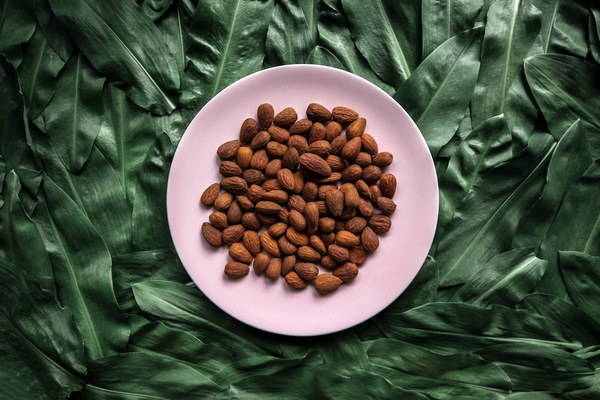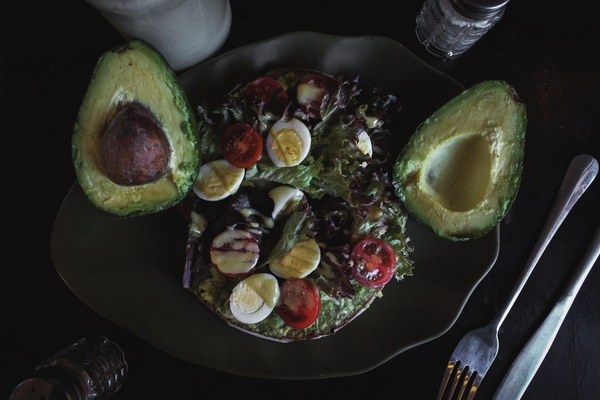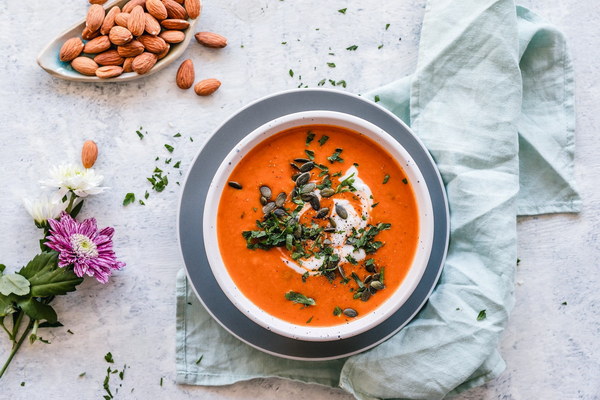Unlocking the Secrets to Warming Up and Draining Dampness A Guide to Traditional Chinese Medicine for Cold and Dampness Relief
In the realm of traditional Chinese medicine (TCM), the concept of dampness and coldness is widely recognized as a primary cause of discomfort and illness. This holistic approach to health focuses on balancing the body's internal environment to promote overall well-being. As a seasoned TCM practitioner, I have gathered insights and strategies to help you effectively warm up and drain dampness, leading to a healthier, more vibrant life.
Understanding Dampness and Coldness
To begin with, let's delve into the essence of dampness and coldness in TCM. Dampness refers to the accumulation of excessive moisture within the body, which can lead to a variety of symptoms such as fatigue, weight gain, bloating, and water retention. Coldness, on the other hand, refers to the presence of low body temperature or a sensation of coldness, often accompanied by joint pain, muscle stiffness, and a weakened immune system.

The interplay between dampness and coldness can create a challenging environment within the body, making it difficult for the organs to function optimally. Therefore, the goal of TCM is to address both factors simultaneously, using a combination of herbal remedies, dietary adjustments, and lifestyle modifications.
Herbal Remedies for Warming Up and Draining Dampness
Herbal medicine plays a crucial role in TCM, and there are several herbs that have been shown to effectively warm up and drain dampness. Some of these include:
1. Cinnamon: Known for its warming properties, cinnamon can help increase body temperature and alleviate symptoms of coldness.
2. Astragalus: This herb strengthens the immune system and promotes circulation, making it an excellent choice for those suffering from dampness and coldness.
3. Poria: Poria has diuretic properties and can help eliminate excess moisture from the body, reducing symptoms of dampness.
4. Atractylodes: Atractylodes is another herb with dampness-draining effects, making it a great addition to any dampness-relieving formula.
It is essential to work with a qualified TCM practitioner to determine the most suitable herbal formula for your specific condition.
Dietary Adjustments
In TCM, the diet plays a significant role in maintaining a balanced internal environment. To combat dampness and coldness, consider the following dietary adjustments:
1. Reduce intake of cold, raw, and damp foods: These can exacerbate dampness and contribute to coldness. Examples include cold drinks, ice cream, raw vegetables, and fruits.
2. Increase consumption of warm, cooked, and drying foods: These can help warm the body and alleviate dampness. Examples include soups, stews, and roasted vegetables.
3. Incorporate warming spices: Spices such as ginger, turmeric, and black pepper can help increase body temperature and support the elimination of dampness.
Lifestyle Modifications
In addition to herbal remedies and dietary adjustments, lifestyle modifications can greatly enhance your efforts in warming up and draining dampness. Here are some tips to consider:
1. Regular exercise: Engaging in physical activity can improve circulation and help eliminate dampness from the body.
2. Adequate rest: Ensuring you get enough sleep is crucial for maintaining a healthy immune system and balancing your body's internal environment.
3. Stress management: Chronic stress can weaken the body's defenses and contribute to the development of dampness and coldness. Find healthy ways to manage stress, such as meditation, yoga, or hobbies.
Conclusion
In conclusion, addressing dampness and coldness through TCM can lead to a significant improvement in your overall health and well-being. By incorporating herbal remedies, dietary adjustments, and lifestyle modifications, you can effectively warm up and drain dampness, paving the way for a more vibrant and balanced life. Remember to consult with a qualified TCM practitioner to tailor these strategies to your individual needs.









